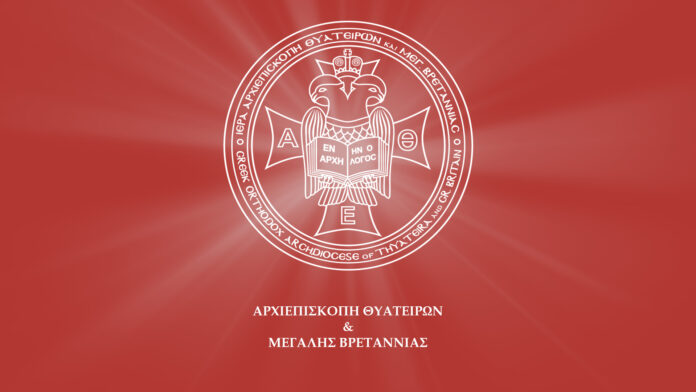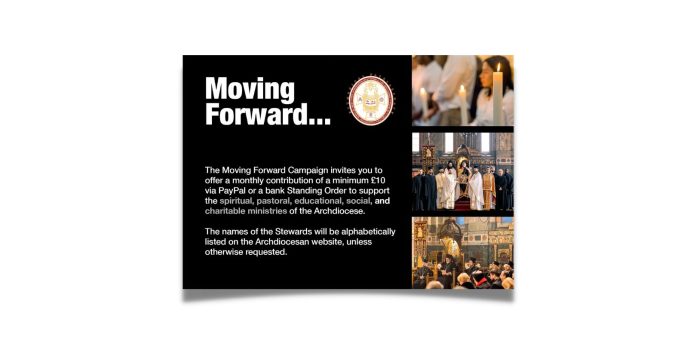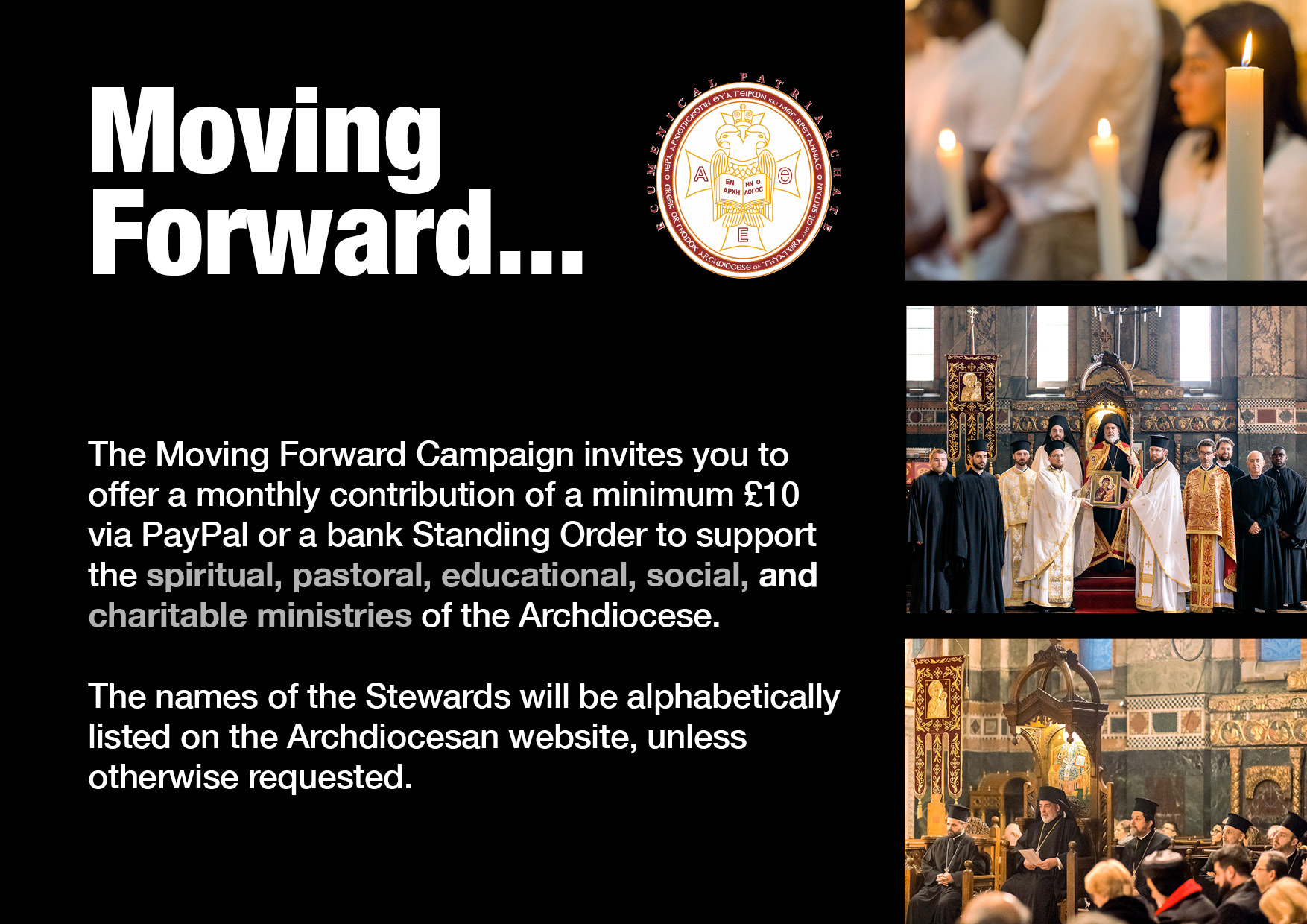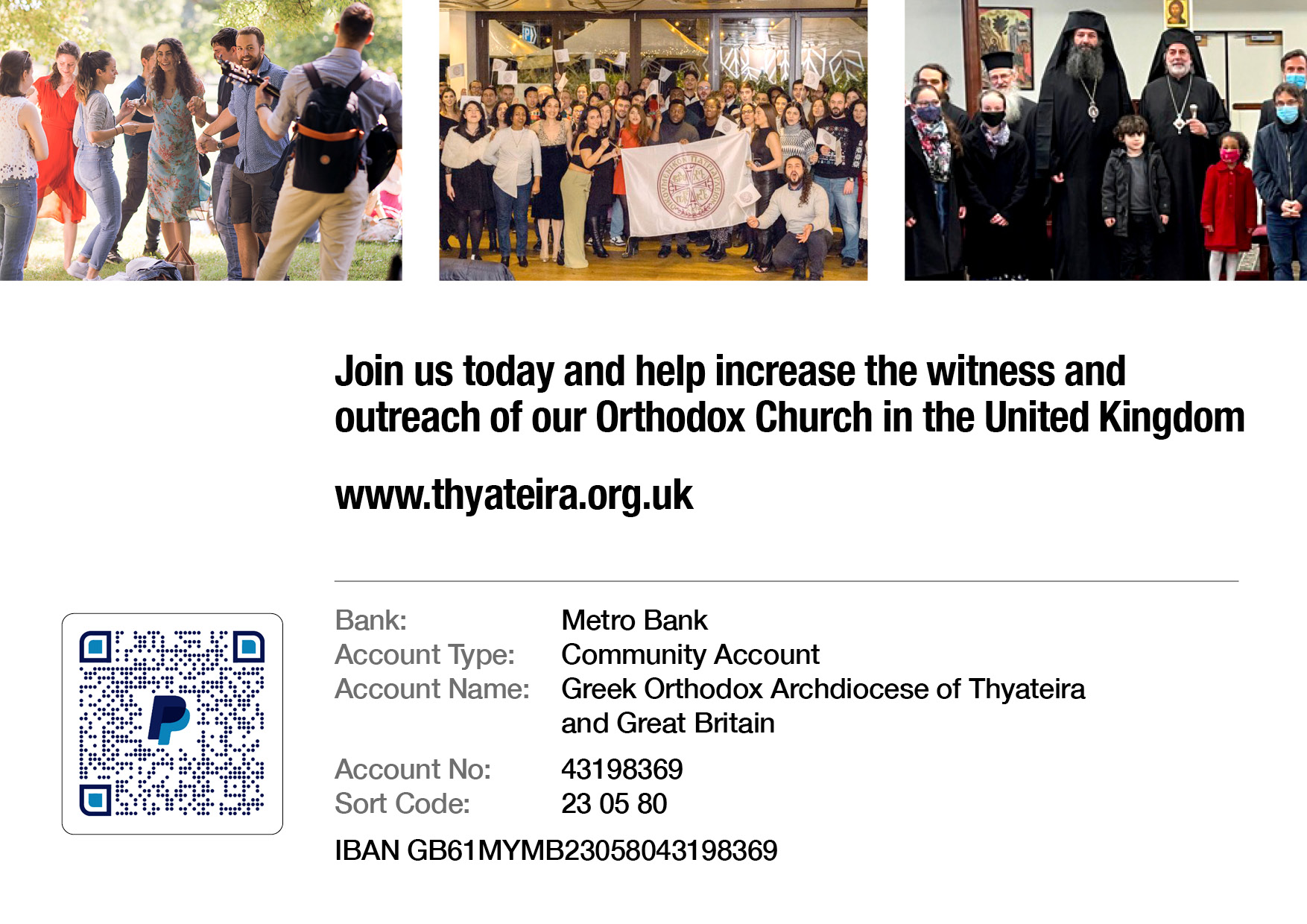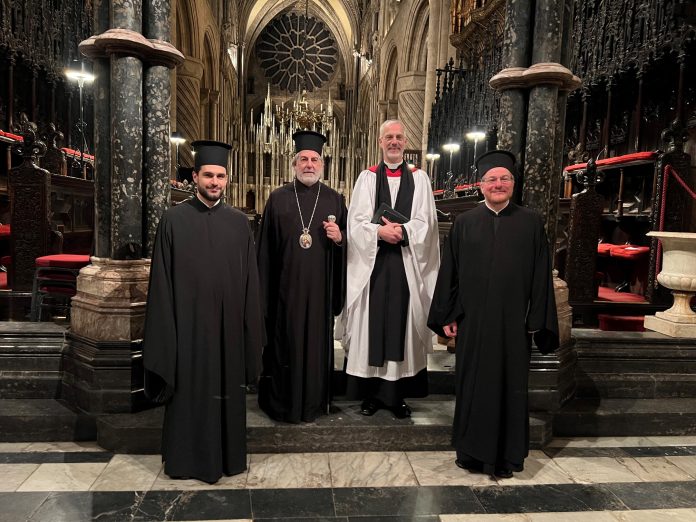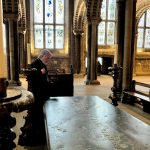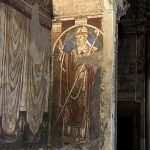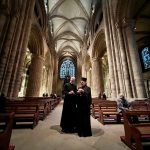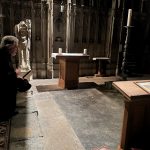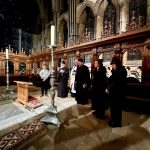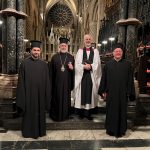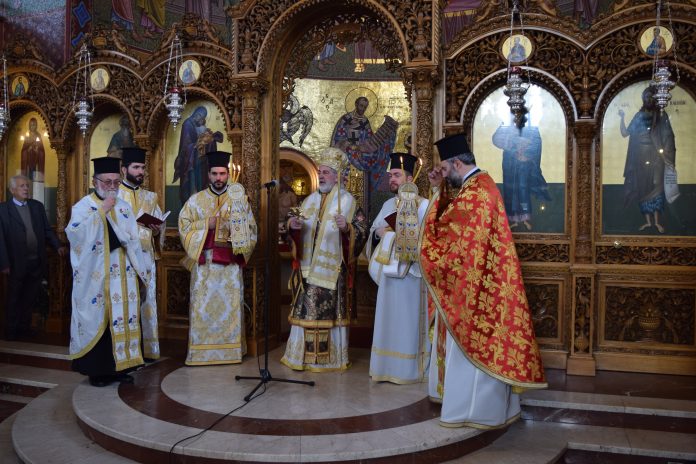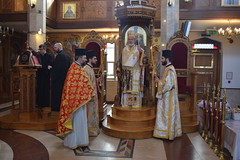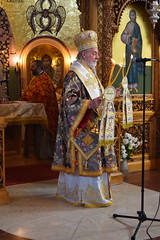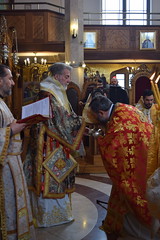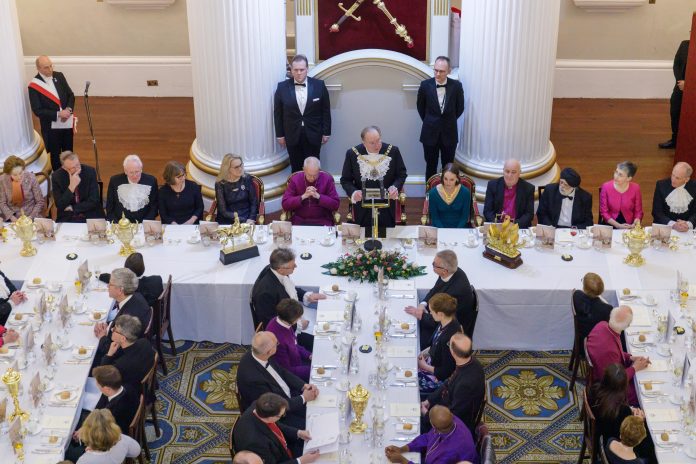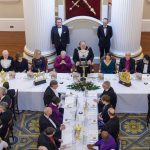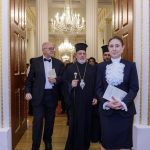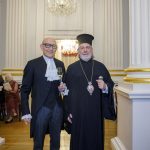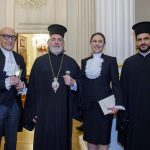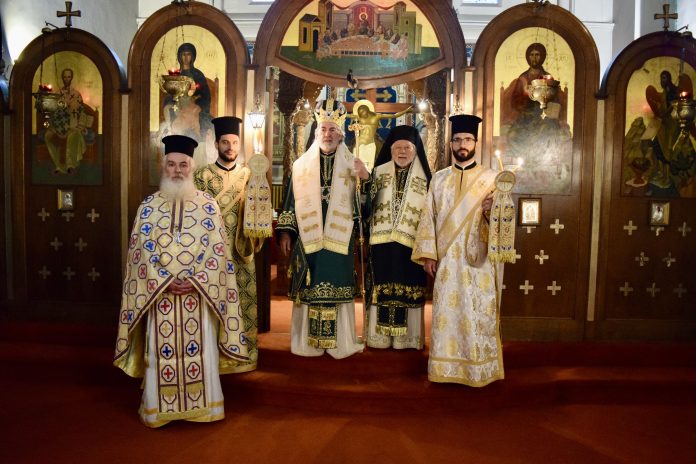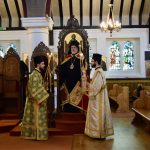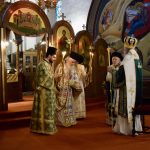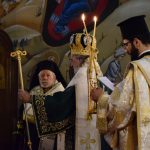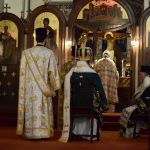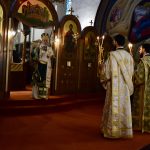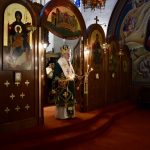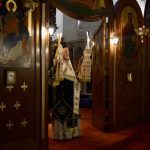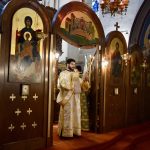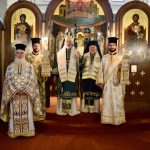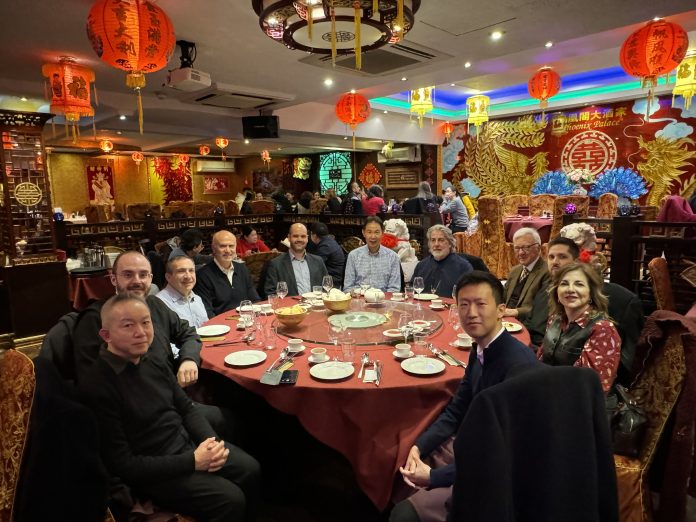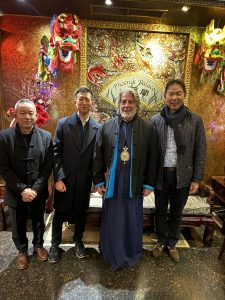Each year at the appointed time, as winter gives way to spring, we prepare our hearts, minds, and bodies to embark on the sacred journey of Holy and Great Lent. This journey leads us along a specially prepared path from the final days of Christ’s earthly ministry to His unjust condemnation, His extreme humiliation, His voluntary passion and crucifixion on the Cross, finally, arriving at the heart of our Christian faith: the Resurrection of our Lord Jesus Christ. Holy and Great Lent is also an invitation to participate in Christ’s Resurrection through repentance. Repentance is much more than an exercise in abstinence or a temporary intensifying of our efforts; it is a summons to realign every aspect of our being according to the example of Christ’s perfect love. Repentance helps us to acquire “eyes to see” and “ears to hear” of the salvific victory over death and corruption and to live it for ourselves.
Every Sunday Matins during the pre-Lenten period and then throughout Holy and Great Lent, we chant, “Open to me the gates of repentance, O Giver of Life, for early in the morning my spirit hastens to Your holy temple…”. Repentance may begin with feelings of grief and remorse for our sins, but the fruits of repentance cultivate within us a desire to continually seek God, to partake more fully in the joy of Christ’s Resurrection. We begin to quench our thirst from the “spring of water welling up to eternal life” (John 4:14), especially once we realize that every other earthly promise of ‘salvation’ and ‘resurrection’ is insufficient; it is like drinking water that will only cause us to thirst again.
The Sunday Gospel readings of the last three weeks before Lent provide us with important guidelines for our repentance, certain conditions for accepting the Resurrected Christ into our hearts. The parable of the Publican and the Pharisee warns us to scrutinize our motivations in order to avoid the delusions of pride and self-righteousness, while pointing to the prudence of approaching God with humility and a contrite heart. The story of the Prodigal Son illustrates God’s unfailing readiness to welcome us back into His loving embrace, no matter how far we may have strayed. The account of the Last Judgment reminds us how surprising it can be to realize that opportunities for repentance and salvation are always before us, that the risen Christ is present in every moment of our lives and in every interaction, even with the “least of our brethren”. “Lord, when did we see you…?”
Equipped with these lessons, how, then, do we engage in the work of repentance? The Church, in her wisdom, provides us with particular ascetic practices that help us to discern the reality of the Resurrection in our daily lives. Through fasting, prayer, almsgiving, vigilance, obedience, silence, and other ascetic efforts, we demonstrate and strengthen our willingness to cooperate with Christ’s love. We learn to allow His life-giving power to transform us, according to His will. These particular forms of asceticism are not, of course, ends in themselves, but means of seizing the Resurrection and placing it at the centre of our lives; in other words, they can teach us to cry out as the Penitent Thief, “Lord, remember me in Your Kingdom”. The asceticism of the Church is a great gift; it is the pen and ink with which we can write our own personal love letters of humility and thanksgiving to our Creator and our fellow human beings—not an alibi to feed our own self-justification, or a regimen to build up our ego and desensitize our hearts to the needs of those around us. “To do righteousness and justice is more acceptable to the Lord than sacrifice” (Proverbs 21:3).
Our Holy Fathers and Mothers, the “great cloud of witnesses” that surrounds us, beseech us to not be indifferent about our salvation, but to run the road of repentance to find refuge in our Father’s house. Saint Symeon the New Theologian entreats us, “I, therefore, beg all of you, beloved fathers and brothers, and I will never stop begging your love not to be indifferent about your salvation”.
Come then, sisters and brothers, beloved people of God, and let us keep our eyes fixed on the joy of the Resurrection. Let our repentance be genuine and our hearts open to the transfiguring grace of God. May our Lenten journey be one of profound renewal, leading us to the glorious celebration of the Festival of festivals with hearts full of doxology and gratitude.
May the mercy, peace, and love of God be with all of us as we begin our annual Lenten pilgrimage to Pascha.
With paternal love and blessings,
Holy and Great Lent, 2024
+ Archbishop Nikitas of Thyateira and Great Britain

